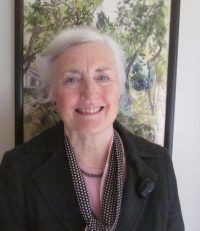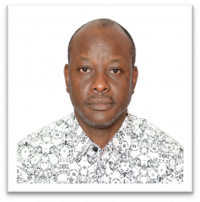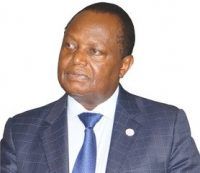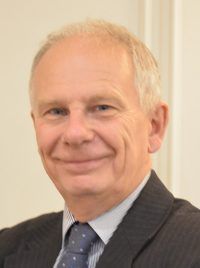
PRI’s Advisory Council was established in 2020 through regulations to PRI’s Articles of Association. Members are appointed by PRI’s Membership Council. The Advisory Council is composed of human rights and criminal justice experts who are committed to actively helping PRI achieve its ambitions through a range of activities and means of engagement. PRI is honoured to have the following distinguished experts contribute to the work of PRI.
PRI’s Advisory Council

Avril Calder
Avril Calder was a magistrate for 35 years, sitting exclusively in two specialised courts—the Inner London Youth Court and the Inner London Family Proceedings Court. These courts deal both with young offenders and with children in need of care and protection. During her years of service she held many leadership roles including those involving the training and assessment of colleagues. Her capacities as a trainer of actors in the fields of youth and family justice have also been in play in European Union projects and overseas. She has spoken widely at and organised many conferences from Children Who Kill in 1995, when she was President of the British Juvenile and Family Courts Society, to, in association with PRI, the World Congress on Justice for Children held at UNESCO, Paris in 2018 when she was President of the International Association of Youth and Family Judges and Magistrates (IAYFJM). From 2006 to 2018 Avril was Editor in Chief of IAYFJM’s Chronicle and took an active role in drafting IAYFJM’s Guidelines on Children in Contact with the Justice System launched at UNODC in Vienna in 2017 with a major follow up at the World Congress in Paris in 2018. Avril hopes that her long experience of the courts and of making judgements on the detention of young offenders will make a valuable contribution to the world-wide work of PRI.

Dr. Espejo-Yaksic
Comparative Law, Child Rights & International Human Rights Law Academic, and expert
Dr Nicolás Espejo-Yaksic is a legal scholar and policy advisor with extensive expertise in children’s rights, family law, access to justice and constitutional law. He serves as Senior Researcher at the Centre for Constitutional Studies of the Supreme Court of Mexico and holds academic positions at several leading institutions, including Exeter College at the University of Oxford, Leiden University, University College Cork, and the Universities of Cambridge and Aalborg. He is also President of the International Network on Constitutional Family Law (INCFL). Dr Espejo-Yaksic has conducted extensive research and published widely on topics such as child rights, disability and law, social rights, and legal theory. His work combines academic insight with policy relevance, having advised the United Nations in Latin America through UNICEF and the Office of the Special Representative of the UN Secretary-General on Violence Against Children. Reflecting on his appointment to Penal Reform International’s Advisory Council, Dr Espejo-Yaksic stated: “Penal Reform International has been instrumental in championing the rights of children in contact with justice systems, advocating for fair, humane, and rights-based approaches that prioritise their well-being and dignity. I am honoured to join the Advisory Council, where I look forward to contributing by promoting innovative, child rights-based methodologies and fostering meaningful connections between partners and ideas from the Global South, ensuring diverse perspectives shape global justice reform efforts.”
Linkedin: https://www.linkedin.com/in/nicolasespejoyaksic/
 Harold Giliard Sungusia
Harold Giliard Sungusia
Harold Giliard Sungusia is a practising advocate of the High Court of Tanzania, Commissioner for Oaths and Notary Public. He has 20+ years’ professional experience, having worked with the Government of Tanzania as a Public Prosecutor, City Solicitor and Legal Officer, and with the Legal and Human Rights Centre of Tanzania as Director of Advocacy and Law Reforms. Currently, he is Country Director, Consultant and Researcher at Sung Consultants. He is a lecturer at the Law School of Tanzania and Resident Associate: Trainer and Researcher/Consultant at MS TCDC, a social justice training institution for East Africa. He is Vice Chair of the Board of Action Aid Tanzania; a member of the Governing Council of Tanganyika Law Society; and Board Member of various East African legal and human rights organisations. He holds Master of Laws (LLM) in International Law and Law of International Organizations with specialization in Human Rights from the University of Groningen, Netherlands; a Post-Graduate Diploma in Law and Bachelor of Laws (Hons) (LLB) from the University of Dar es Salaam. He has been awarded several international scholarships and in 2019 facilitated the Tanzania Criminal Justice Transformation Programme which was supported by the British High Commission under KPMG.

Justice Ben Kioko
Justice Ben Kioko is a Judge and the Vice-President of the African Court on Human and People’s Rights. He was elected judge of the African Court in 2012 and re-elected in 2018, by the Executive Council and appointed by the Assembly of Heads of State and Government of the African Union (AU). Prior to joining the African Court, Justice Kioko served as The Legal Counsel to the AU and as Director for the unified Central Legal service for the AU, its organs and institutions for more than a decade. In this position, he acquired extensive experience on African matters working with governments, the Regional Economic Communities, as well as the UN and its Agencies, the European Union, World Bank, OAS, CARICOM, ASEAN, and other international and multilateral institutions. Justice Kioko has widely published on diverse areas of the law. He serves in various international advisory boards as well as editorial boards of several international Law Journals. He is a member of the chartered Institute of Arbitrators (MCIArb) and a recipient of two prestigious national awards.

Stephen Pitts
Steve began his career as a Probation Officer in London, working in most areas of practice before moving to management and national roles including initiatives to support the service’s work in partnership and to develop evidence-based practice. Following a period with the European Commission as an advisor on probation development, he established the England and Wales (then) National Offender Management Service’s (NOMS) international team, leading the prisons and probation international research and justice assistance programmes. Steve now works independently and with governments, international bodies and civil society organisations around the world supporting community-based justice reform and development. He plays a leading role in several international networks and initiatives to promote just and effective alternatives to imprisonment and pursues a strong interest in the relationships between social and criminal justice, the UN SDGs, stronger communities, environmental sustainability, and related issues within and beyond the field of criminal justice.

Morris Tidball-Binz
UN Special Rapporteur on extrajudicial, summary or arbitrary executions
Morris Tidball-Binz (Viña del Mar, Chile, 1957) is a physician specialized in forensic science, human rights and humanitarian action. He contributed to the development and the worldwide use of forensic science to document torture, detention conditions, enforced disappearances and extrajudicial executions, as well as to respond to armed conflicts and natural catastrophes. Over the past 40 years, he has conducted forensic investigations into human rights violations as well as human rights and humanitarian forensic fact-finding, technical assessment and capacity building missions to over 80 counties in all regions and contributed to international standard setting. He stated, “With regards to my motivation to join the PRI Council I can summarize this as a genuine interest in contributing my skills, particularly in medicine and forensic science applied to the protection of human rights of those deprived of liberty, and life-long experience experience in working for NGOS (including PRI*), IGOS and international organizations.“
*Morris established the Penal Reform International Regional Office for Latin America in Costa Rica in the from 1999-2001!
Linkedin: https://www.linkedin.com/in/morris-tidball-binz-aa23912a/details/experience

Coletta A. Youngers
Coletta Youngers is a Senior Fellow with the Washington Office on Latin America (WOLA), Senior Associate with the International Drug Policy Consortium (IDPC), and International Outreach Coordinator for the US-based National Council of Incarcerated and Formerly Incarcerated Women and Girls. She also serves on the Asamblea General (Board of Directors) of the Colombian human rights NGO, Dejusticia. A leading expert on issues related to women and incarceration in the Americas, Ms. Youngers has over thirty years of experience working on human rights and drug policy in Latin America, and on U.S.-Latin American relations. She is the lead coordinator of a project on women, drug policy and incarceration in Latin America; participates on behalf of WOLA in the Research Consortium on Drugs and the Law (CEDD); and is co-editor of Drugs and Democracy in Latin America: The Impact of U.S. Policy (2004), also published in Spanish. She is also the author of the books, Violencia Política y Sociedad Civil en el Perú (2003) on the Peruvian human rights movement, and Thirty Years of Advocacy for Human Rights, Democracy and Social Justice (2006), on the history of WOLA. She earned a Masters’ Degree in public affairs at Princeton University’s School of Public and International Affairs.